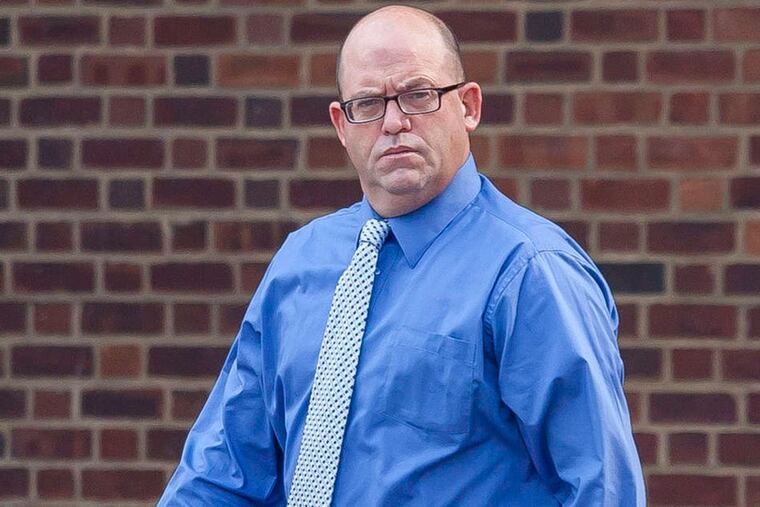Two more ironworkers get prison for campaign of intimidation, sabotage
Two more members of Philadelphia Ironworkers Local 401 were sentenced to prison this week for participating in an organized campaign of violence, sabotage, and intimidation intended to pressure builders into hiring union workers.

Two more members of Philadelphia Ironworkers Local 401 were sentenced to prison this week for participating in an organized campaign of violence, sabotage, and intimidation intended to pressure builders into hiring union workers.
William Gillin, 43, was sentenced to 51/2 years Friday. He is one of 11 members of the union who confessed to a list of crimes last year, including a December 2012 arson at a Quaker meetinghouse under construction in Chestnut Hill.
That attack prompted calls from builders to crack down on what they described as Philadelphia's entrenched culture of union intimidation and violent retribution.
At his sentencing hearing Friday, Gillin told U.S. District Judge Michael Baylson he felt manipulated by the union leadership into committing crimes. But he said he went along - participating in the meetinghouse arson and two other planned fires - because he needed the work to support his family.
"I've never had much in life, but what I had I have right here," he said, indicating his family sitting in the court gallery. "Everything I did I did for them."
In addition to his prison term, he was ordered to pay $119,000 in restitution and serve three years of probation upon his release.
Gillin's sentencing came a day after Baylson gave a sentence of six months in prison followed by six months of house arrest to another ironworker - Daniel Hennigar, 54, who also admitted to participating in the attack on the meetinghouse.
In all, prosecutors brought charges against 12 members of Ironworkers Local 401, most of whom pleaded guilty before trial.
Union head Joseph Dougherty, however, held out and was convicted by a jury of racketeering conspiracy and related counts of vandalism and extortion. Gillin and Hennigar testified against the ex-labor boss at his trial.
Their testimony indicated Ironworkers Local 401 was a union in which violence served as more than just a negotiating tool - it was ingrained into the very structure of the organization.
Willingness to participate in arsons, vandalism, and beatings delivered on picket lines - called "nightwork" by union members - was a major factor in deciding which workers received the best assignments and moved up in the union hierarchy, they said.
In preparation for the sentencing hearings yet to come, Baylson wrote a lengthy memo last month laying out his views on the case.
Over 50 pages, he analyzed the history of union violence in the city, a pattern he described as "simply unacceptable in a civil society" and a "scourge," which he compared to "a biblical plague."
"Much of the history of construction unions in Philadelphia has been one of strife, corruption, violence and discrimination," Baylson wrote. He added: "The opportunity to deter future crimes is an opportunity too important to ignore."